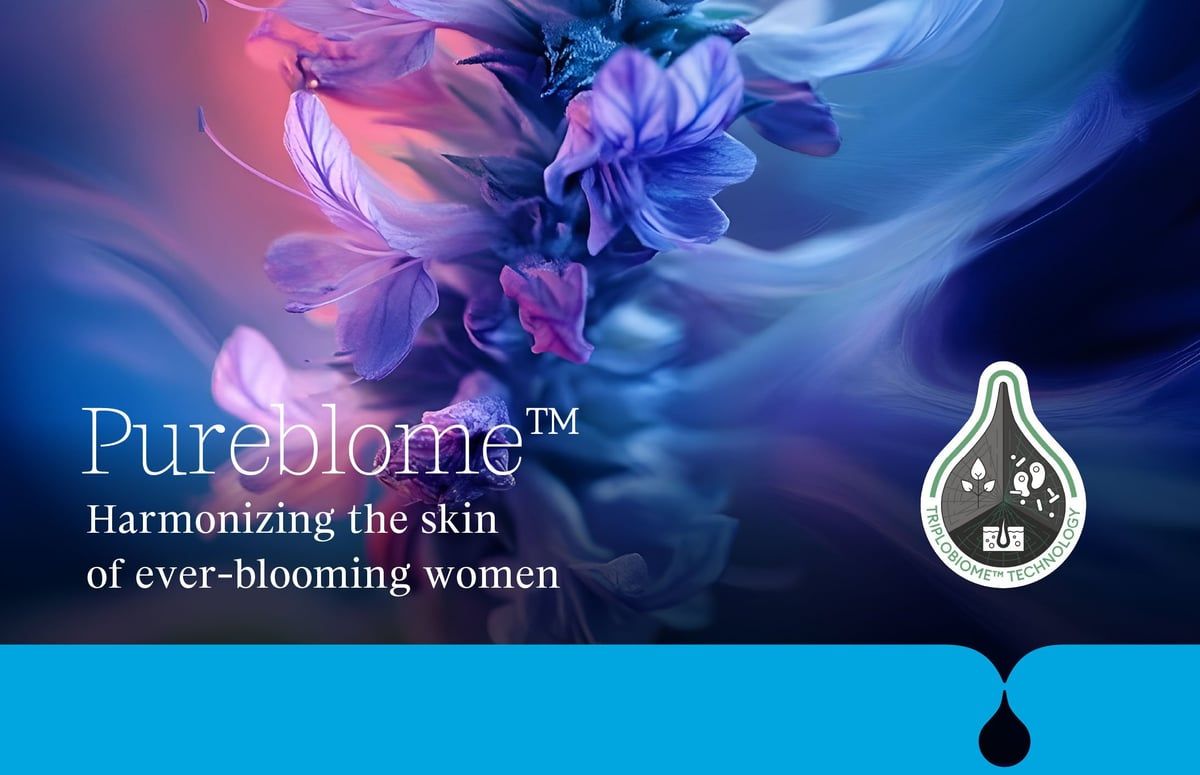Currently, more and more women between 30 and 50 years old are concerned about acne in adulthood. The modern pace of life and work pressures have contributed to a global increase of 10% in cases of female adult acne in the last decade. In addition, according to the American Acne Association, 31.9% of women between 20 and 70 years old suffer from it, compared to 20.5% of men.
This situation has driven the demand for specific anti-acne solutions, closely linked to the rise of the dermocosmetic market. In addition, there is a growing concern about hormonal imbalances, in a context where health and skin care have become priorities.
What is adult acne?
Adult acne, also known as post-adolescent acne, is that which appears after the age of 25. Although it shares many of the causes of acne in adolescence, it can also be influenced by other factors specific to adulthood.
The main causes include excessive sebum production (hyperseborrhea), pores clogged by dead cells (hyperkeratinization), imbalance of the skin microbiome —which can generate an abnormal proliferation of microorganisms— and inflammation caused by the secretion of interleukins.
Since sebum production is hormonally regulated, hormonal imbalances are often a major trigger for acne in adulthood. Together, these factors create an environment conducive to the appearance of imperfections, pimples and persistent inflammation of the skin.
The relationship between adult acne, hormonal change and stress
Adult acne is more common in women than in men, mainly due to the hormonal changes linked to the menstrual cycle, pregnancy, perimenopause or menopause. It may also be associated with conditions such as polycystic ovary syndrome (PCOS). In many cases, it is a continuation of adolescent acne, although in some women it appears for the first time in adulthood.
Stress, increasingly present in the modern lifestyle, is also related to the appearance of outbreaks. In addition, many women have used hormonal contraceptives for years without adequate monitoring, which can affect the balance of the skin.
According to Provital, these adult consumers are now looking for products different from those of their adolescence: they prioritize skin health and value formulas backed by science. Although many accept living with adult acne, they want solutions that improve the appearance of their skin, promoting skin balance and a beauty that is born from within.
Inflammaging and Well-Aging: new concepts that drive innovation
The concepts of inflammaging and well-aging have gained relevance in dermatological research, as it has been discovered that the same cytokines involved in acne (IL-6 and IL-8) are also present in the inflammaging process. This has reinforced the connection between adult acne and skin aging. Women who suffer from it are now more demanding and seek advanced, natural and respectful solutions for their skin, which has driven the development of more innovative and less invasive products.
PureblomeTM: creating an “agro-psychological” solution
In response to the growing interest in specific solutions for adult acne, Provital has launched a new biotechnological active ingredient, defined as an 'agro-psychological solution', which addresses this skin concern in a comprehensive manner. The combination of psychological balance and physical renewal of Ecopsychology, together with sustainable practices of Agroecology, offers women stability in their personal and skin well-being.
Pureblome™ not only helps fight acne, but also offers multiple benefits: it is formulated to work in harmony with the female skin cycle, helping to balance the skin, combat inflammaging and improve the overall texture. It is the second ecosystem ingredient developed by Provital through its Triplobiome™ Technology innovation platform, a technology that is based on the use of plant endophytes as a sustainable source for generating active ingredients. In the case of Pureblome™, Provital identified and isolated endophytic bacteria (Bacillus valenzensis), present in the leaves of Hyssop (Hyssopus officinalis), an aromatic plant with medicinal and bioremediation properties. This raw material is obtained from Parc de les Olors, a local agroecological supplier that guarantees sustainable practices.
Thanks to an exhaustive metabolomic analysis, Provital anticipated the key metabolites that facilitate the symbiotic exchange between the plant and bacterial kingdoms, thus allowing the development of an ingredient with multifunctional effectiveness and sustainability from its origin.
The results obtained show a revitalization of fibroblasts and a rebalancing of sebocytes for complete dermal regeneration. In addition, improvements in skin purity, anti-inflammaging effects and a more even tone were observed. To support its effectiveness, Provital carried out a triple efficacy analysis, both in vitro and in vivo.
In vitro tests revealed a 14% increase in collagen, 25% in elastin, and 77% in cell migration, along with a 27% reduction in total lipids, reflecting an effective balance in sebocytes. For its part, the in vivo study carried out on 76 female volunteers between 30 and 50 years of age, showed a 75% improvement in the matte appearance of the skin and an 89% antimicrobial reduction, attributed to the decrease in protoporphyrins, according to the clinical analysis of experts.
What better example of agro-psychology than the Bio-Balancing Veil Serum with Pureblome™? A gel-essence that connects skin care with nature, balancing body and mind from its agroecological origin. Incorporate agro-psychology into your product line to regenerate skin and inner well-being.

